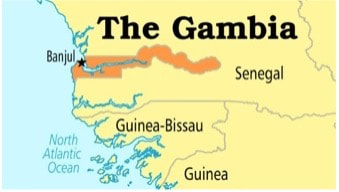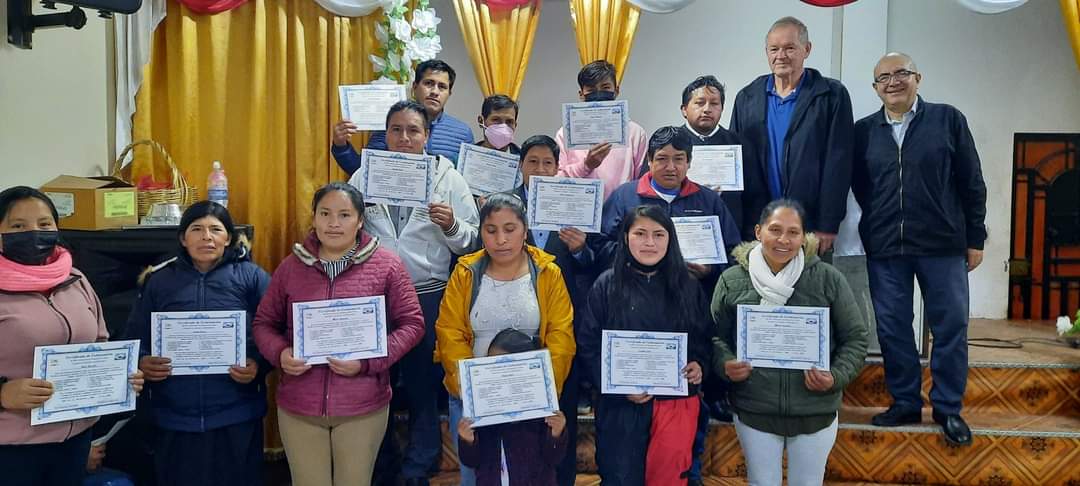|
“I glorified You on earth, having accomplished the work that You gave Me to do.” (John 17:4).
There are many times I look back on my past and realize that I did not do my best, or the work was incomplete in some way. At the end of His life, Jesus could make this statement with total assurance it was true. The witness of others about Jesus was, “they were astonished beyond measure, saying, “He has done all things well. He even makes the deaf hear and the mute speak”” (Mark 7:37). That could be said of everything Jesus did. At the pinnicle of His life when Jesus became a sacrifice for our sins, He said, “It is finished” (John 19:30). There was a reason for Jesus “doing all things well” and ‘finishing’ the work God gave Him to do. He wanted to glorify His Father through His work. I can assure you that every detail of what we do is being observed, both by heaven and people. Though we are imperfect and our work imperfect, I want your attitude and my desire to be that all is done that best we can for God’s glory.
0 Comments
 Tomorrow, Randy leaves Malaysia and some wonderful, fruitful times of ministry there. We will pass on more details and news of this visit when they are received. From May 2nd to the 5th, Randy and Pat will be in The Gambia and Senegal countries of West Africa. Evangelical Christians make up around .2% of this Muslim majority country. Prayercast reports: “Discipleship & leadership training are needed in order to effectively reach those living in isolated areas and to motivate believers to witness to their fellow Gambians.” They will introduce God’s Plan for His Church to EMS missionaries in these countries. Please pray that these messengers of the gospel will discover the unstoppable plan of Paul and the early church so they might multiply churches that will take the gospel to the unreached peoples (85%). As we have witnessed in Nigeria, Burkina Faso and other African nations, these men and women are fearless to walk into areas of danger with the living and powerful Word of God. Their goal is twofold; give the life-giving gospel to those who have never heard, and disciple those who received the gospel. BE SURE TO WATCH OUR NEW VIDEO ON THE TRAINING RESOURCE PAGE! DID YOU KNOW that of the 7,382 languages in the world, 25% or 1,849 languages need the Bible translated into their language. Here are some additional details to understand how much of the Bible is available in languages around the world.
SCRIPTURE NUMBER OF LANGUAGES Full Bible 720 New Testament ONLY 1,606 Portions of Scripture 1,897 Low language viability 1,310 Translation needed 1,849 (Resource: Joshua Project, April 2022) The importance of Scripture in the spread of the gospel reminds me of Jesus’ prayer in John 17; “I have given them the words that You gave me, and they have received them and have come to know in truth that I came from You; and they have believed that You sent me” (17:8). And then in verse 14, “I have given them Your word.” If you want to give someone the most powerful tool in the universe, given them God’s Word. If you want to meet the needs of the poor in this world, there is no better place to start than by preaching the Gospel.
K. P. Yohannan, Founder of Gospel for Asia It is no use walking anywhere to preach unless our walking is our preaching.
Francis of Assisi (Due to unexpected illness with COVID, the next few days will be short, but thought provoking). When I think of Jesus’ words in Matthew 24:14, I wonder how serious the Church is about the return of Jesus for His Bride? “And this gospel of the kingdom will be proclaimed throughout the whole world as a testimony to all nations, and then the end will come.”
There were some in the Early Church who expected the Lord to return at any moment. Should we? This was such a big issue that false teachers deceived those waiting for the Lord’s return and taught that He had already come. This spread fear and doubt. This took place in the very church that received the gospel, “not only in word, but also in the power of the Holy Spirit and with full conviction…in much affliction, with the joy of the Holy Spirit.” This spiritual condition provided the perfect soil for strong and successful evangelism. “For not only has the word of the Lord sounded forth from you in Macedonia and Achaia, but your faith in God has gone forth everywhere, so that we need not say anything” (1 Thessalonians 1:5-8). Linking these thoughts together, we can see that proclaiming the gospel to all nations and expecting the Lord to return are equally important and cannot be separated. Perhaps we need to examine how we received the gospel and ask whether our expectancy of His return matches our beginning with the gospel? As I pondered Winter’s comments on world evangelism and scan the real landscape of those who have never heard, we must conclude that the task of making disciples of every ethnê is not finished. What attitude should we adopt?
Paul helps us by expressing his heart for missions. “I make it my ambition to preach the gospel, not where Christ has already been named, lest I build on someone else’s foundation” (Romans 15:20). This approach was developed in Paul, Barnabas, Silas, Timothy, and others as they preached from city to city and established churches where the gospel was received. Though Paul was not present when Jesus mentored His disciples, he followed Jesus’ example of preaching where the message had not yet been heard. “They found Him and said to Him, “Everyone is looking for You.” He said to them, “Let us go on to the next towns, that I may preach there also, for that is why I came out.” And he went throughout all Galilee, preaching in their synagogues and casting out demons” (Mark 1:37–39). If any other desire is motivating us, I would be bold enough to say that in some way we are missing the heart of the gospel, and thus the heart of Jesus and the Spirit. “In recent years, a serious misunderstanding has crept into the thinking of many evangelicals. Curiously, it is based on a number of wonderful facts. The gospel has now gone to the ends of the earth. Christians have now fulfilled the Great Commission in at least a geographical sense. At this moment of history, we can acknowledge with great respect and pride those evangelists of every nation who have gone before us and whose sacrificial efforts and heroic accomplishments have
made Christianity by far the world’s largest and most widespread religion, with a Christian church on every continent and in practically every country. This is no hollow victory. Now more than at any time since Jesus walked the shores of Galilee, we know with complete confidence that the gospel is for all men, that it makes sense in any language and that it is not merely a religion of the Mediterranean or of the West. This is all true. On the other hand, many Christians as a result have the impression that the job is now nearly done and that to finish it we need only to forge ahead in local evangelism on the part of the now worldwide church reaching out wherever it has already been planted. Many Christian organizations ranging widely from the World Council of Churches to many U.S. denominations, even some evangelical groups, have rushed to the conclusion that we may now abandon traditional missionary strategy and count on local Christians everywhere to finish the job.” (Ralph D. Winter, The New Macedonia - A Revolutionary New Era in Mission Begins, 1974). What if the local believers are not properly prepared? We believe our part is to prepare them through the authority of Scripture and the Holy Spirit.  (Report from Tom) “I had the opportunity to minister at several different locations in Ecuador earlier this month. At some of the places we visited, they told me there was more than one congregation was present. In Quito, I participated in a graduation service for about 25 people who had just completed God’s Plan for His Disciples (GPHD). There was real excitement as they received their Certificate of Completion and shared with those attending what they have learned from the study of God’s Word. We traveled by car to Guayaquil where we spent Sunday with several different congregations. We introduced GPHD at one location and discovered genuine excitement over the material, especially as we took time to go through one of the lessons with them. Later that evening, we went to another church where they were commissioning three people to begin teaching GPHD to others, following Paul’s instructions in 2 Timothy 2:2. It was a real blessing to see them catch the vision of this training and beginning to teach the material on their own to others. The Lord also gave me a great opportunity to encourage one of our leaders, a pastor and several of the Quechua leaders. They are developing into leaders who care about the maturity of the Quechua flock.” The Holy Spirit and the Antioch church sent out Barnabas and Saul (Paul) in Acts 13:1-3 to proclaim the gospel where it had not been heard. The Spirit led them to places like Iconium, Lystra, and Derbe. It was during this mission trip that Paul developed a method of establishing new converts so they would become strong in the faith. Read these verses from Acts 14 that prove this point.
“When they had preached the gospel to that city and had made many disciples, they returned to Lystra and to Iconium and to Antioch, strengthening the souls of the disciples, encouraging them to continue in the faith, and saying that through many tribulations we must enter the kingdom of God. And when they had appointed elders for them in every church, with prayer and fasting they committed them to the Lord in whom they had believed” (14:21–23). Notice the steps of this process:
What you do not see in these verses is that this took place over about three to four months. It was a method that God used, recorded and works in any age and under any conditions. |
Archives
June 2024
Link To Our Old Blog:
|

 RSS Feed
RSS Feed